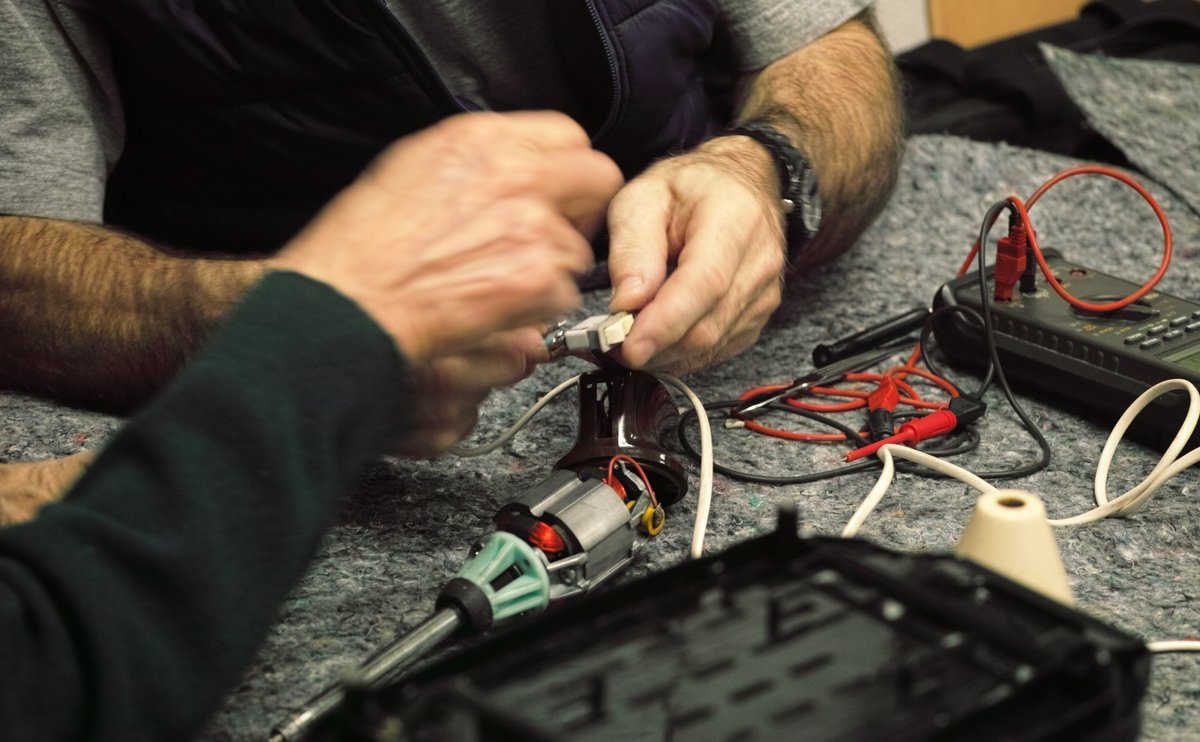How repairing and DIY change the relationship with the world
Repairing is in vogue. While new Repair Cafés are opening every week, the "Screw loose!?" initiative is making inroads into the European Union with its demand for a right to repair. Is this the renaissance of a cultural technique that was thought to have been lost, or merely a short-lived hype? In the book "Verhältnisse Reparieren," researchers Melanie Jaeger-Erben and Sabine Hielscher delve into the world of amateur repair and do-it-yourself. Above all, the two authors are concerned with one thing: describing how repairing and DIY can have a positive impact on identity and also improve social relationships and the troubled relationship between people and the environment.
"Modern households are filled with more and more things, many of which get little or no use, are in need of repair, or sometimes need a new coat of paint. We were interested in the circumstances under which people re-enter into a relationship with these things," explains Melanie Jaeger-Erben, a sociologist of technology and the environment at the Brandenburg University of Technology Cottbus-Senftenberg. "The current circumstances of production or consumption in the capitalist market tend to alienate people and things from each other. Repairing and Do-It-Yourself can overcome this alienation and create new circumstances."
The healing effect of repairing and do-it-yourselfing
The researchers explored the question of what exactly is 'broken' about human-thing relations and needs to be repaired. "We think that acquisition, appropriation, everyday use and ultimately the relationship to things in the Western world need to be rediscovered and experienced," said Sabine Hielscher, who researches social innovation and social change at the Institute for Ecological Economy Research (IÖW). "We want to look behind these concepts and show how working on things yourself can have a healing effect when you repair and do it yourself. It's not just the things themselves that are repaired, but also the relationships and relations to the world."
How the practice of repairing affects the relationships to things and to the world is shown in the book by numerous repairers themselves - through pictures, drawings and quotes. In the process, it becomes clear that it is always also about the relationships of people to one another that are formed through things - about communication about things, about the social practice lived through consumer objects, and about the joint activity on the thing in communities of self-work.
Summary: The book is a plea for more creative experiments in repair and the promotion of inclusive places of community repair.
Bibliographic information: Melanie Jaeger-Erben, Sabine Hielscher, Repairing Circumstances: How repairing and DIY change our relationship to the world. Transcript. ISBN: 978-3-8394-5698-9. Paperback & Open Access. www.transcript-verlag.de/978-3-8376-5698-5/verhaeltnisse-reparieren/
Contact the authors: Prof. Dr. Melanie Jaeger-Erben Brandenburg University of Technology Cottbus-Senftenberg Tel.: +49 335 692985 melanie.jaeger-erben@b-tu.de
Dr. Sabine Hielscher Institute for Ecological Economy Research (IÖW) Tel.: +49 30 884594-583 sabine.hielscher@ioew.de
Press contact: Richard Harnisch Institute for Ecological Economy Research (IÖW) T +49 30 884594-16 kommunikation(at)ioew.de
Kristin Ebert Brandenburg University of Technology Cottbus-Senftenberg Communications and Marketing Office T +49 355 69 2115 kristin.ebert(at)b-tu.de

